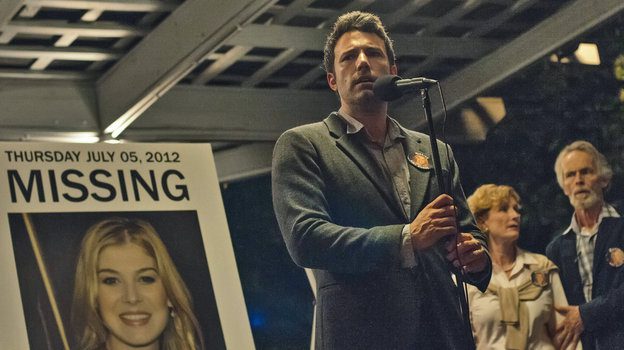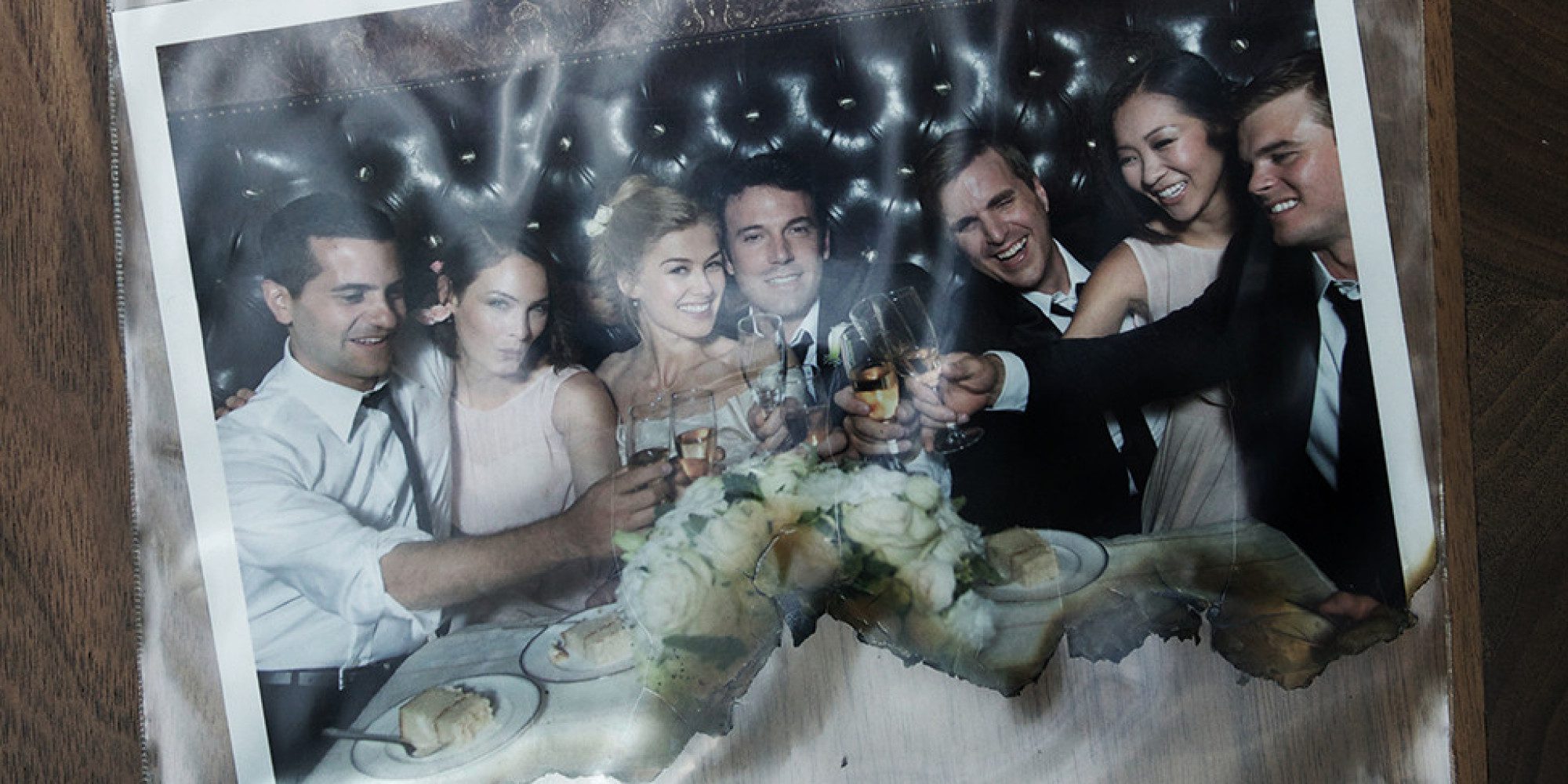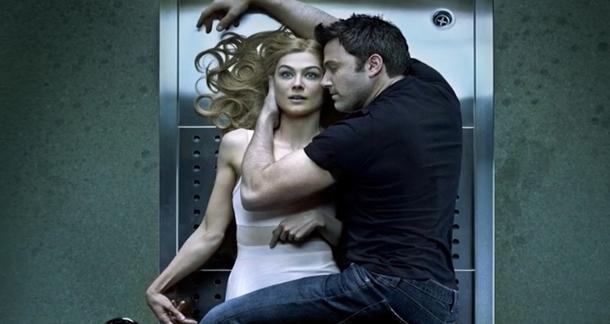When this year ends it will likely be remembered, or at least should be, as a nauseating series of events that have shown how real and dangerous a problem misogyny still is. Every time you turn around it seems there’s another enraging story of how badly men treat women and often get away with from the resurfaced allegations against Woody Allen, to the uphill fight to properly prosecute sexual assault in the military, domestic abuse by sports players, the creepy sexism and intimidation in the gaming world, to the hacked nude photos of several celebrities, the wholesale kidnapping of hundreds of girls in Nigeria by Boko Haram, and the Santa Barbara shooting back in May which showed the awful consequences of what happens when boys feel entitled to women’s bodies (and in response gave us the constructive #YesAllWomen awareness campaign).
This would have been an ideal time for David Fincher to release his Girl with the Dragon Tattoo remake, with its story of evil men who harbor violent contempt for women. Alas, he already made that lurid near-masterpiece back in 2011. Instead we now get Gone Girl, based on the Gillian Flynn novel (and adapted by the writer herself) that’s a far cry from the feminist leanings of his last movie. This basically flips the gender identification of The Girl with the Dragon Tattoo around, feeling tantamount to a #YesAllMen statement. It’s also a second-rate entertainment from the man who has brought us some of the best films of recent years. Fincher can do better.
The movie begins on an anniversary as a picture-perfect couple are about to celebrate their fifth year together (the captions inform us that it’s the “morning of”, though doesn’t specify what, and keeps the countdown running from there). It’s not to be. When the husband, Nick Dunne (Ben Affleck), returns home after a morning out, he finds their living room trashed and his wife Amy is nowhere to be seen. He calls the police who search the place and take him in for the standard questions about his wife (many of which he peculiarly lacks answers to). The blood in the kitchen makes it clear that something more grisly than a mere kidnapping took place. And their romance-already suggested in the opening frames and first lines to be deteriorating-is shown to be a farce; a sick-joke dying corpse. So what happened?
Those who read the book will already know (Flynn has kept the big-screen adaptation faithful to all the major points) and those who haven’t will find not knowing more entertaining than finding out. Gone Girl gets some real unnerving mileage out of the way that Dunne appears to have been set up and is subsequently crucified by the national press after a few missteps. How much emotion should you show publicly? How do you respond when people shout at you to smile or take pictures with you? What Fincher captures ably is the way that sometimes telling the truth and staying composed in those bad situations is probably even harder than covering up. The message is clearly that he could be any of us.
Affleck was then a terrific choice to play Nick Dunne. With his good looks and broad shoulders, he’s like a hulking idealized version of the American everyman and he plays on that well here, showing us a person who hypothetically could be anyone but slowly reveals new layers of complexity and resentful desperation under the police-and media’s-microscopic gaze. As Amy, Rosamund Pike is stunning. She uses her English accent to effortlessly don a patrician, socialite voice and projecting an air of intimidating intelligence and poise (it’s a part considerably more layered even than Affleck’s and incredibly bold). She and Affleck don’t share that many scenes together, but the flashbacks to them meeting and flirting in overly-clever yet sexy exchanges (as narrated by Amy through her diary entries) are some of the best in the film.
The rest of the cast is wisely selected too. Where Fincher has gone for more straight-up dramatic performers in the past he gives a crucial role as one of Amy’s former lovers who might be insane to Neil Patrick Harris, Patrick Fugit plays one of the cops on the case, Casey Wilson (formerly of SNL) plays a housewife, Missi Pyle appears stars as a Nancy Grace type, and none other than Tyler Perry takes the role of the prominent defense attorney who takes on the Dunne case (his sharp, cocky turn is a highlight). The presence of all these comedic performers and unexpected faces (Emily Ratajowski, known from Robin Thick’s “Blurred Lines” video plays a major character’s girlfriend) gives Gone Girl a different-and welcome-stylistic flavor than previous Fincher movies.
Where problems arise, they don’t ever seem to emanate from David Fincher’s doing. At this point he’s easily one of the most technically competent directors, dislike or love the films themselves. He brings again a chilly efficiency again to Gone Girl, with a taut, superior sense of direction and assured hand coaxing fine performances out of his actors (even if sometimes, like with Lisa Banes, who plays Amy’s mother, he lets her play up the part too broadly). Visually it has that cold, slightly spooky look he’s so enamored of (he again works with Trent Reznor whose soundscapes match what we see onscreen so well). In terms of pure technique, few pictures this year could outshine it.
What’s less dazzling at times is the writing he’s working off. Flynn’s novel makes for a movie that’s much riper and more potent in its mystery-shrouded first half or so than the second half when virtually everything is explained. The tension just leaks right out of the thing. Fincher was too loyal to the source material structure of The Girl with the Dragon Tattoo and he makes that mistake again here, where he should have more ruthlessly reshaped it for maximum effect and shorter running time. The glib, sensational tone is somewhat appropriate for the filmmaker whose most recent work has been as executive producer on Netflix’s House of Cards, but with this material it wears awfully thin. In a pivotal scene with Neil Patrick Harris she has the characters saying words hilariously stilted and wooden where they should have been pulp and much of the writing apart from that is just okay.
Gillian Flynn is kind to no one in particular-this is a scathing, merciless depiction of the ugly other side of a marriage and the terrible secrets waiting to be found-but she saves her most pointed meanness and accusations for women. It’s not just the overwrought paranoia of showing men being falsely accused of murder, stalking, domestic abuse, and rape (which is questionable in the extreme as it’s not subtext or a side-plot: it’s what the entire story is about), she looks on other women with mocking contempt. Her self-pleased dismissive commentary on how women act would have been unforgivable coming from a male writer and I imagined would have received substantial blowback had it been.
With David Fincher giving cinematic life to it, we get women depicted as unkindly as Wilson’s aggressively malleable and dim-witted housewife character who is clearly a complete fool for not putting all the pieces together. The movie feels more absurd and hollow the further it gets along, becoming progressively untethered and unhinged. It’s not a step forward for the director whose last two projects were incredibly exciting works of film-art (his 2010 The Social Network might very well turn out to be the film of the decade). The nasty and twisted Gone Girl is the work of a mortal, not a god and most definitely not a goddess. It’s just a movie.



